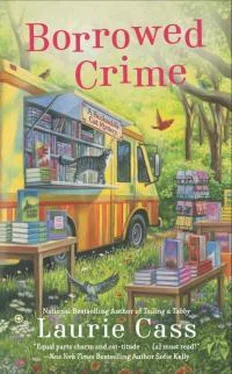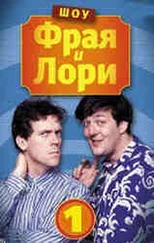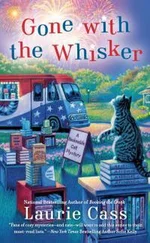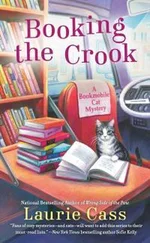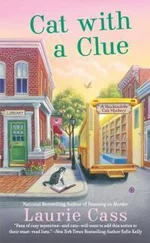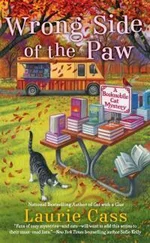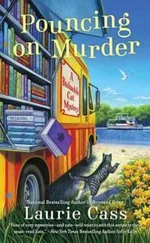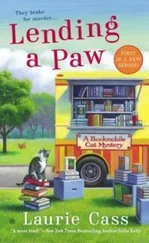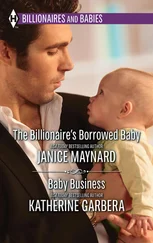I squinted up at Mitchell. “What’s my name doing here?”
“Yeah.” He grinned. “What kind of list do you think it is?”
As far as I could tell, it was a list of all the people who lived in Chilson. “I have no idea.”
Mitchell picked a pen out of my old ABOS coffee mug and, as he wrote a title on the top page, said the words out loud. “Anyone Who Has Ever Said Anything Bad about Denise Slade.”
I started to object, but stopped and felt ashamed of myself. Yes, every so often, I ignored my mother’s oft-repeated maxim about not saying anything if I didn’t have anything nice to say. I’d probably said uncomplimentary things about Denise, and if I’d said them within Mitchell’s hearing, I should be doubly ashamed.
“Yeah.” With a finger riddled with hangnails, Mitchell tapped at my name. “Once I heard you say that Denise sees everything in black and white. It didn’t sound like a compliment, you know? So I had to put you down.”
Thinking about it, I had to agree.
Starting at the top of the list, Mitchell began telling me exactly why each of the names were included. Ten minutes later, he flipped to page two. “And Bruce Medler? That library-board guy? Well, this one day, I heard him—”
“Wow, I’m sorry, Mitchell,” I said, getting to my feet, “but would you look at the time? Why don’t you type all that up? Then e-mail it to me.”
“Yeah?” Mitchell gathered up his papers. “That’s a good idea, Minnie. Real good. Must be why you get the big bucks, right?”
“Right.” I ushered him out, shut the door behind him, and went back to my desk.
She sees everything in black and white.
I sat down and got to work.
Chapter 17
During my typical walk from the library to Chilson’s downtown, I made sure to admire the sunlight on the steeple of the Methodist church, the stonework on the former corner gas station–turned–real estate office, the window display in Upton’s Clothing, and the smells from Tom’s Bakery.
But instead of doing all that, this time I walked toward the deli, with my head down against the unending rain, thinking hard. Which was why I didn’t see the small child until I almost ran into him.
“Whoa!” I jumped back before I knocked the poor thing to the sidewalk. “Sorry about that.”
His mother, or at least the woman I assumed was his mother, turned around and called. “Brody, what are you doing? I told you to hang on to my coat.” Her arms were full of shopping bags, a diaper bag, and an infant. “Hurry up, now.”
But the boy, who might have been five, didn’t move. He pointed at the sky. “Look, Mommy! It’s a bald eagle!”
“That’s nice. Now hurry up. We have a lot to do.” Mommy, busy and harried, didn’t look up, but I did. There was, in fact, a large bird floating about up in the sky, wings spread wide, head turning left and right, looking for whatever it was large birds look for. In this case, probably a late lunch.
“It’s a bald eagle,” Brody said, and it was instantly clear to me that the kid wasn’t going to move until Mom admitted that the bird was an eagle.
“Of course it is,” Mom said, sending me a busy smile. “This nice lady thinks so, too, I bet.”
I squinted up at the bird. In summer, sitting on the front of my houseboat, I’d see eagles every once in a while, but in spite of the bookmobile’s bird book, I was no expert and I didn’t want to name the bird incorrectly. Librarians aren’t big on that kind of behavior.
“I’m not sure,” I said. “Maybe, but I can’t quite see if it has a white head or not.” Even if it didn’t, if I remembered correctly from a long-ago science class, it could still be a bald eagle, a young one, since their heads didn’t get fully white until they were about five years old.
“Eagle.” Brody stomped his foot. “It’s a bald eagle.”
“Actually, it is.”
The three of us turned. Shannon Hirsch stood a few feet away, squinting a little as she watched the bird. “Big one, too, so it’s probably a female.”
“I told you.” Brody stomped his feet again, making small splashes on the wet sidewalk. “It’s a bald eagle.”
“You can tell?” Mom asked. “For sure?”
“Without any doubt.” Shannon grinned at me. “The trophies in my office? Having bizarrely sharp vision made winning all those a lot easier.”
Mom thanked her and escorted Brody to their next task.
I looked at Shannon. “Have you won anything lately?”
“Not hardly,” she said. “My competition guns are at the gunsmith for maintenance. I usually do my own cleaning, but I’ve been too busy.”
“How long have your guns been out?”
“A month. About the longest month of my life.”
“Who do you use?” I asked casually. “Someone local?”
“There’s a guy down in Grayling I trust, but he’s been slammed with work because of hunting season. I should have known better, right?” She smiled ruefully. “Well, back to the trenches.”
We made our mutual good-byes and walked off in different directions.
Inside the deli, I found myself in line—if you could call the two people in front of me a line, and once you’d lived Up North for a full year, you did—behind Pam Fazio.
“Hey there,” she said. “Didn’t you say you have a couple of nieces?”
I nodded. “Katrina is fifteen, and Sally is eleven.” I also had a nephew, Ben, who’d been born in the middle. “If you have any ideas for Christmas presents, I’m open to any and all suggestions.”
“Got a shipment yesterday,” she said, “and the container—”
There had been conversation going on around us at the occupied tables, but the instant Pam had said the word “container,” everyone stopped talking.
“Yes,” she said, laughing and spreading her arms wide in invitation. “Yesterday was container day. I’ll have everything unpacked by early next week.”
“Where was this one from?” someone asked.
“Ireland,” Pam said, putting on an Irish accent. “With lace and glass and sideboards from foggy green coasts. With boots and books and bottles and crates full of things unseen.”
“Books?” I asked. Pam made regular trips overseas, buying hither and yon and packing everything into a massive container that got stowed on a ship and eventually arrived in northern lower Michigan.
“Of all sorts. And,” she said, winking broadly, “some lovely hand mirrors that might be just the thing for young nieces.”
It sounded perfect. “How about a present for a thirteen-year-old nephew?”
“Now, Minnie,” she said, dropping the accent. “There’s only so much even I can do for you.”
I laughed and was really, really glad that this nice woman wasn’t a killer.
* * *
The afternoon flew past as quickly as the morning had. Just as I was thinking that it was time to pack up and go home, my phone rang. The line was full of pops and static, and I wasn’t sure there was anyone on the other end, but I said hello and gave my name anyway.
“Minnie . . . you?”
I stood, as if that might help the reception. It didn’t, of course, but at least I’d tried. “Cade? What’s up?”
“Nothing . . . just closed . . . auction . . . price was . . . thousand dollars.”
He sounded excited, but that had to be the line’s poor quality, because there was no way he should be pleased about selling a painting for a thousand dollars. I’d looked up his work and had been shocked to find out that some of his larger paintings had sold for six figures. In front of the decimal. Not that a thousand dollars wasn’t a nice donation to the library, but I’d held out hopes for more. “Thanks for letting me know,” I said. “I’m happy the family even considered the library.”
Читать дальше
